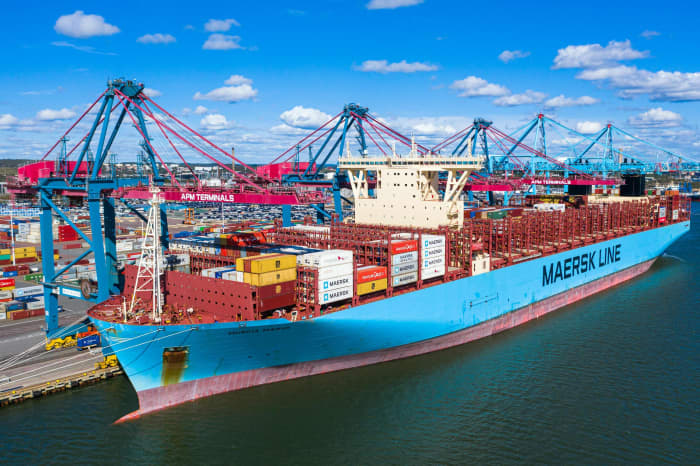MarketWatch
Hydrogen, ammonia and a clean-fuel standard could help get the world to net-zero emissions
Transportation working group tells Clean Air Task Force that multi-pronged approach beyond electricity is needed

AFP Getty Images
Electrifying global transportation won’t be enough to reach net-zero emissions in coming decades without pushing alternative fuels like hydrogen and ammonia, a large group of industry representatives and climate-change experts told the Clean Air Task Force.
The group, although not perfectly aligned in how best to reach the emissions target backed by President Biden, global leaders and many industry heads, also found some consensus that a clean-fuel standard can play a critical role in driving the carbon intensity of transportation energy down to zero, CATF said in their report out Thursday.
Transportation is the highest emitting sector in the U.S., accounting for 29% of carbon emissions in 2019. Change is urged from commercial vehicle fleets to cargo ships to individually-owned autos.
CATF, along with the Union of Concerned Scientists and other nonprofit groups, created the workshop with representatives from companies who traditionally based their business on the burning of fossil fuels, including Toyota Motor Corp., Ford Motor Co., Exxon Mobil Corp. and others.
Participants stressed in part their belief a transition to net-zero emissions must not hammer consumers with high costs, nor erode their bottom lines. That will likely mean that the technologies must be either inherently inexpensive or incentivized by government subsidies, the group said.
“We… landed on a consensus that we must pursue parallel paths simultaneously, while pushing for policy change, to maximize our chances of success,” said CATF Senior Counsel Jonathan Lewis, who leads the organization’s work to decarbonize the transportation sector. “We encourage industry leaders, lawmakers, regulators and investors alike to review our findings and consider them when weighing how best to pursue deep decarbonization of the transportation sector.”
As for the alternate fuel focus, a future decarbonized transportation system will likely require net-zero or nearly net-zero-carbon fuels. These include zero-carbon energy carriers such as hydrogen and electricity, and potentially net-zero-carbon liquids that are made from zero-carbon energy sources such as renewables, nuclear power, or fossil combustion with carbon capture and storage (CCS), the report said. They can also include hydrocarbons whose combustion emissions can be net-zero on a lifecycle basis, if the carbon is sourced from biomass (that captures carbon from the atmosphere as it grows) or from carbon captured directly from the atmosphere through engineered systems.
Green hydrogen has found renewed traction in recent years though remains expensive enough that subsidies are needed in most cases. Billionaire Bill Gates has included hydrogen in the green portfolio he is backing.
Ammonia has several key properties that make it a possible option, though most likely for use in the marine shipping industry and not personal vehicles given its potency in high concentrations. One cubic meter of liquid ammonia actually provides approximately 50% more energy than the same volume of liquid hydrogen.
The most recent report from the Intergovernmental Program on Climate Change (IPCC) found that decarbonizing the global transportation sector, which accounts for 16% of global carbon emissions, is critical to combatting climate change and keeping the planet from warming beyond 1.5 degrees Celsius.
The workshop group agreed that the current pace of policy change is too slow. Specifically, the group discussed the way a national low-carbon fuel standard, segueing to or nesting a net-zero-carbon fuel standard by 2050, is likely to be the most viable and adaptive overall framework to decarbonize the transportation sector.
The first low-carbon fuel standard mandate in the world was enacted by California in 2007. New York is pursuing its own.
For now, suppliers whose fuels are above a certain carbon intensity level are required to purchase credits from producers and users of low-carbon fuels.
Author: John Hanno
Born and raised in Chicago, Illinois. Bogan High School. Worked in Alaska after the earthquake. Joined U.S. Army at 17. Sergeant, B Battery, 3rd Battalion, 84th Artillery, 7th Army. Member of 12 different unions, including 4 different locals of the I.B.E.W. Worked for fortune 50, 100 and 200 companies as an industrial electrician, electrical/electronic technician. View all posts by John Hanno
